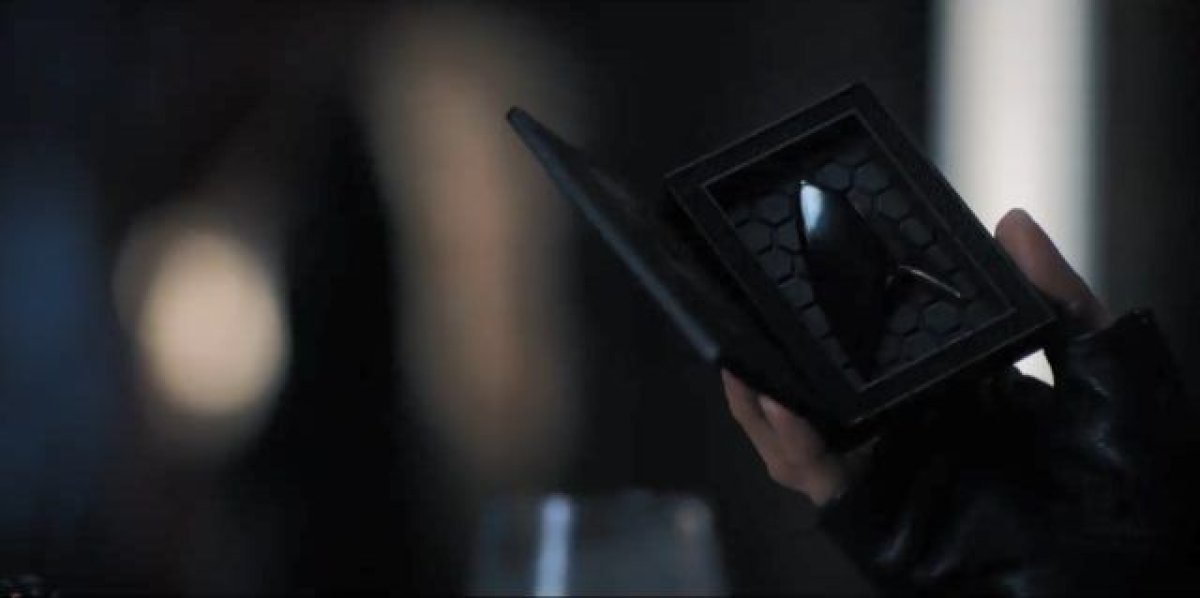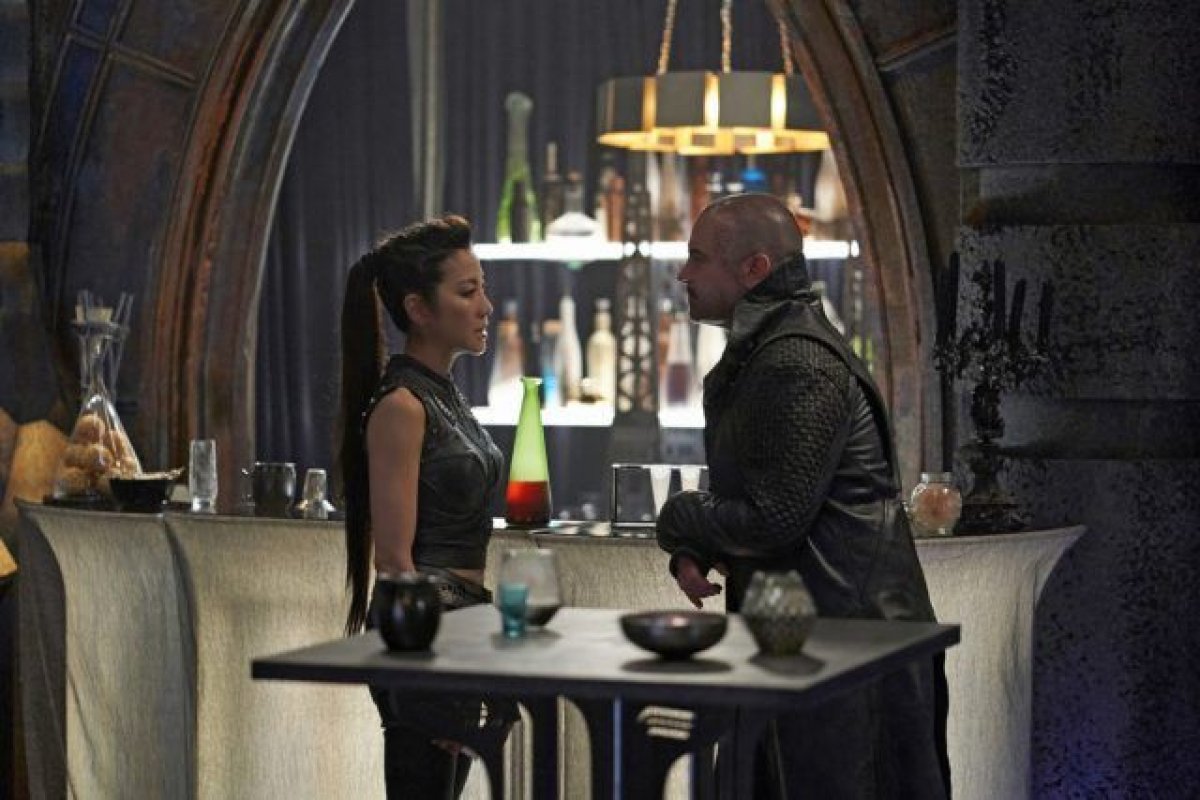The Star Trek: Discovery "Visionaries" panel at WonderCon 2018 revealed a number of details about Season 2, but none so consequential as the return of Section 31: Star Trek's very own CIA-style dirty tricks crew and the United Federation of Planets' answer to the so-called Deep State.
The return of Section 31 was accompanied by a scene cut from the Star Trek: Discovery finale, "Will You Take My Hand?" which reveals what happens to the deposed Emperor of the Mirror Universe's Terran Empire, Philippa Georgiou (Michelle Yeoh), after Michael Burnham (Sonequa Martin-Green) set her loose on the galaxy (watch it above).
In the deleted scene, Georgiou, now running a cabaret (Star Wars cantina-style) on Qo'noS, is confronted by a disguised operative named Leland (Alan Van Sprang). Describing his organization as "far more resourceful" than Starfleet, Leland offers Georgiou a black badge and the opportunity to "exert some influence over the fate of this galaxy."

"Welcome to Section 31," he says.
After screening the deleted scene, Star Trek: Discovery showrunners Gretchen Berg and Aaron Harberts confirmed the Section 31 operative Leland would return in Season 2.

Section 31 was introduced in Star Trek: Deep Space Nine episode "Inquisition" and later appeared in both Star Trek: Enterprise and Star Trek Into Darkness. The clandestine organization acts as a black-ops adjunct to Starfleet Intelligence, though it operates separately from any Starfleet oversight, with most people unaware it even exists. Section 31 routinely violates Federation values, operating more like the CIA by overthrowing governments and deploying biological weapons. Continuously operating since the beginning of Starfleet, Section 31 doesn't even have the pretense of democratic accountability afforded its real-world equivalent, the Central Intelligence Agency.
Ever since its introduction, Section 31 has had a queasy relationship with Star Trek utopianism. While Deep Space Nine largely treated the organization as villainous, Executive Producer Ira Steven Behr intended the organization to act as a necessary evil. "Why is Earth a paradise in the twenty-fourth century? Well, maybe it's because there's someone watching over it and doing the nasty stuff that no one wants to think about," Behr said in the Star Trek: Deep Space Nine Companion.
Rather than imagining a pluralistic, socialist, egalitarian society whose values can endure civilizational threats, Section 31 provides a grotesque shortcut, portraying the United Federation of Planets as in need of terror tactics, torture and anti-democratic mechanisms to survive. Will Star Trek: Discovery rebuff or endorse that message?
We'll find out when Season 2 hits All Access. CBS has yet to confirm a release date for new episodes.
Uncommon Knowledge
Newsweek is committed to challenging conventional wisdom and finding connections in the search for common ground.
Newsweek is committed to challenging conventional wisdom and finding connections in the search for common ground.
About the writer
To read how Newsweek uses AI as a newsroom tool, Click here.








